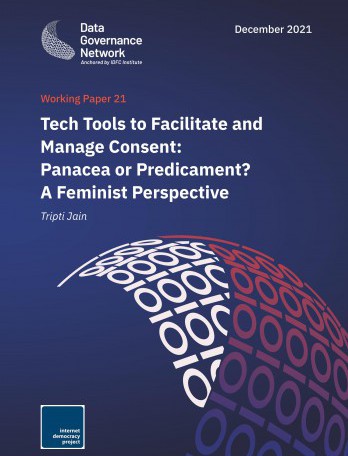

- Technology
- Digital tools

- 23 Dec, 2021


In this exploratory study, the paper assesses account aggregators (AA) in India, and the emerging ecosystem in which they are embedded, against the feminist principles of consent in the age of embodied data. While consent continues to be a cornerstone of ensuring autonomy across data protection regimes, research has nevertheless been critical of it. In an earlier study, Anja Kovacs and Tripti Jain (Kovacs & Jain, 2020) identified the current perception of data, i.e. as a resource, as one of the crucial problems plaguing existing consent regimes; instead, we demonstrated, data is increasingly functioning as an extension of, or even integral to our bodies. They then built on this reconceptualisation to draw parallels between feminist learnings around sexual consent and data protection, to delineate six feminist principles that need to be observed in data protection regimes for consent to be meaningful there (Kovacs & Jain, 2020). Meanwhile, technology-enabled consent frameworks, such as the account aggregator framework conceptualised and launched in India, aim to similarly address key criticisms of consent regimes today, to thus strengthen user consent and the autonomy of individuals. The author examines in this research study how well the developing AA ecosystem in India is delivering on these claims in practice. Assessing it against each of the feminist principles of consent, the author asks to what extent AAs align with the feminist principes, whether AAs are effective, and what the way forward is. As the paper notes, while AAs do mark a notable improvement over existing consent regimes in a number of ways, many weaknesses remain. All too often, this is because AAs are positioned as a silver bullet: changes in the broader landscape in which they are embedded, while crucial to their mission, remain absent. As long as this does not change, it will not be possible for AAs to do all the work that is currently expected from them.